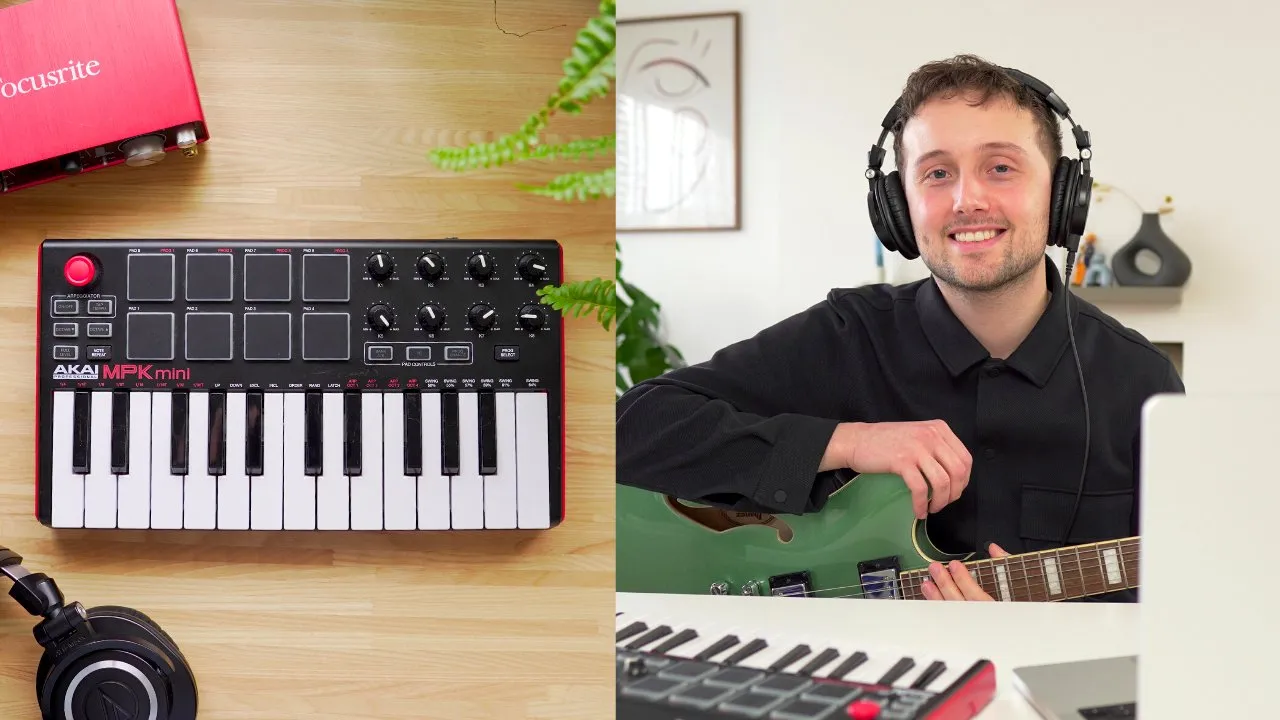
Introduction To Music Theory 
This course is designed for those with a passion for music and a desire to learn more about its fundamentals. It is perfect for musicians who have learned by ear and have no formal training, as well as those who wish to study music but are unsure of where to start. It provides an introduction to music theory, giving students the tools to understand and appreciate music. ▼
ADVERTISEMENT
Course Feature
![]() Cost:
Cost:
Free
![]() Provider:
Provider:
Edx
![]() Certificate:
Certificate:
Paid Certification
![]() Language:
Language:
English
![]() Start Date:
Start Date:
Self paced
Course Overview
❗The content presented here is sourced directly from Edx platform. For comprehensive course details, including enrollment information, simply click on the 'Go to class' link on our website.
Updated in [March 06th, 2023]
Learners can learn the fundamentals of music theory from this course. This includes topics such as scales, chords, intervals, and key signatures. They will also learn about the different types of musical notation and how to read and write music. Additionally, they will gain an understanding of the different musical genres and how they are composed. Finally, they will learn how to apply their knowledge of music theory to their own compositions and performances.
[Applications]
Upon completion of this course, students will have a better understanding of the fundamentals of music theory and be able to apply this knowledge to their own musical compositions. They will be able to identify and use basic musical elements such as scales, chords, and intervals. Additionally, they will be able to use music notation to write down their own compositions. Finally, they will be able to use their newfound knowledge to collaborate with other musicians and create music together.
[Career Paths]
1. Music Producer: Music producers are responsible for overseeing the production of music recordings. They work with artists, songwriters, and engineers to create the best possible recordings. They are also responsible for selecting the right instruments and sounds for a particular project. As technology advances, music producers are increasingly using digital tools to create and mix music.
2. Music Educator: Music educators are responsible for teaching music to students of all ages. They may teach in a school setting, or they may teach privately. Music educators must have a deep understanding of music theory and be able to communicate it to their students. They must also be able to motivate and inspire their students to reach their full potential.
3. Music Therapist: Music therapists use music to help people with physical, emotional, and mental health issues. They use music to help people express themselves, cope with stress, and improve their overall wellbeing. Music therapists must have a deep understanding of music theory and be able to apply it to their work.
4. Music Composer: Music composers are responsible for creating original music for a variety of projects. They may compose music for films, television shows, video games, or other media. Music composers must have a deep understanding of music theory and be able to apply it to their work. They must also be able to work with a variety of instruments and sounds.
[Education Paths]
1. Bachelor of Music: A Bachelor of Music degree is a four-year program that provides students with a comprehensive education in music theory, composition, performance, and music history. Students will learn the fundamentals of music theory, including scales, chords, and harmony, as well as the basics of music composition and performance. This degree is ideal for those who want to pursue a career in music, such as a performer, composer, or music educator. Developing trends in this field include the use of technology to create new sounds and the incorporation of popular music styles into traditional music theory.
2. Master of Music: A Master of Music degree is a two-year program that provides students with an advanced education in music theory, composition, performance, and music history. Students will learn more advanced concepts in music theory, such as counterpoint and orchestration, as well as more advanced techniques in composition and performance. This degree is ideal for those who want to pursue a career in music, such as a performer, composer, or music educator. Developing trends in this field include the use of technology to create new sounds and the incorporation of popular music styles into traditional music theory.
3. Doctor of Musical Arts: A Doctor of Musical Arts degree is a three-year program that provides students with an in-depth education in music theory, composition, performance, and music history. Students will learn advanced concepts in music theory, such as counterpoint and orchestration, as well as more advanced techniques in composition and performance. This degree is ideal for those who want to pursue a career in music, such as a performer, composer, or music educator. Developing trends in this field include the use of technology to create new sounds and the incorporation of popular music styles into traditional music theory.
4. Music Technology: A Music Technology degree is a two-year program that provides students with an education in the use of technology in music production, composition, and performance. Students will learn the fundamentals of music technology, including digital audio workstations, MIDI sequencing, and sound design. This degree is ideal for those who want to pursue a career in music production, sound engineering, or music technology. Developing trends in this field include the use of artificial intelligence to create new sounds and the incorporation of popular music styles into music technology.
Course Provider

Provider Edx's Stats at AZClass
Discussion and Reviews
0.0 (Based on 0 reviews)
Explore Similar Online Courses

Classification of COVID19 using Chest X-ray Images in Keras

Free Piano Tutorial - PI-101 Top 10 Classical Piano Pieces for Beginners

Python for Informatics: Exploring Information

Social Network Analysis

Introduction to Systematic Review and Meta-Analysis

The Analytics Edge

DCO042 - Python For Informatics

Causal Diagrams: Draw Your Assumptions Before Your Conclusions

Whole genome sequencing of bacterial genomes - tools and applications

Orchestral Music Composition & Music Theory for Video Games

Music Theory for Songwriters: From Beginner to Producer


Start your review of Introduction To Music Theory